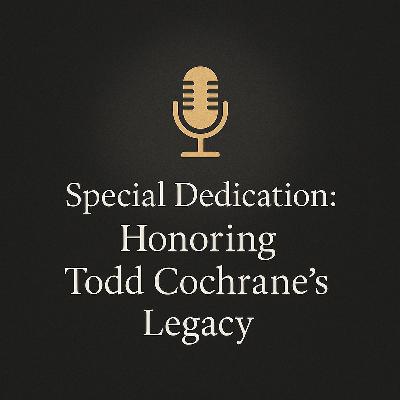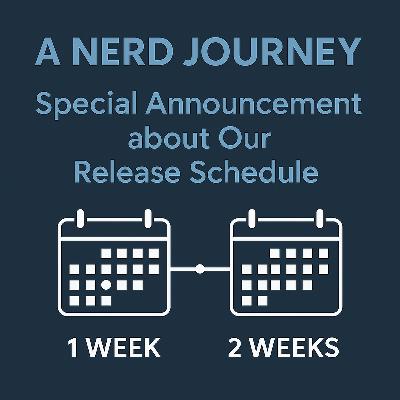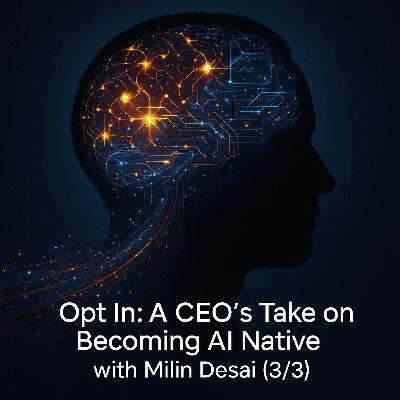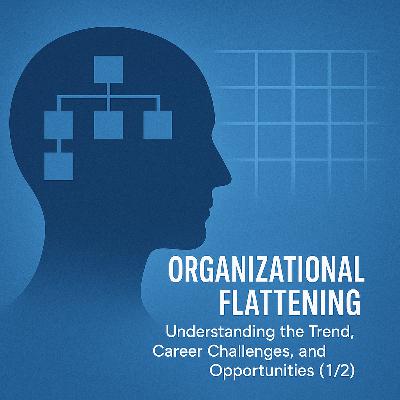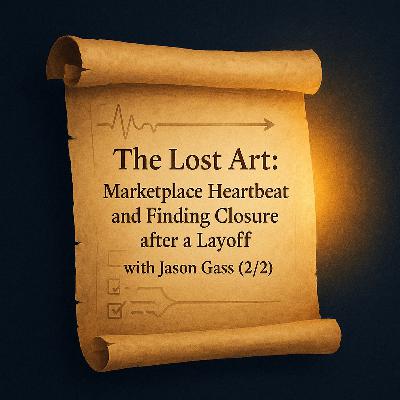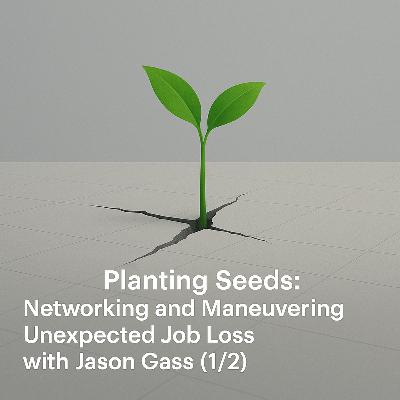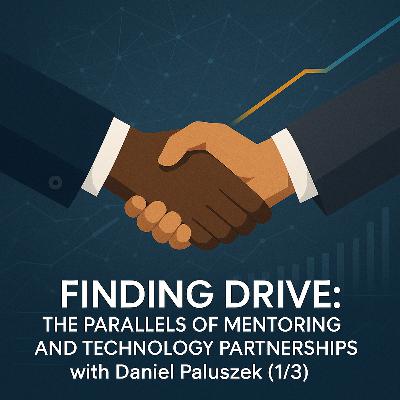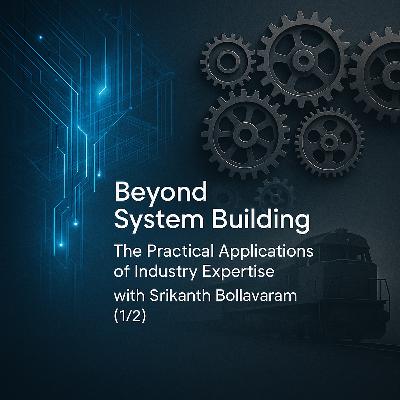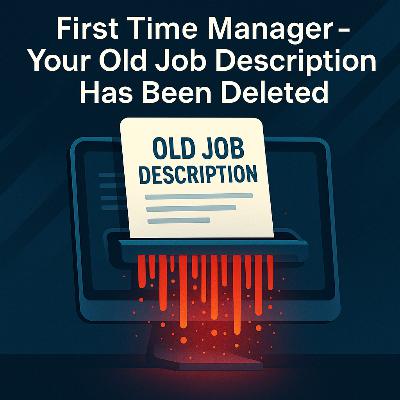Special Dedication: Honoring Todd Cochrane’s Legacy
Description
Episode 346 is dedicated to the memory of Todd Cochrane. Todd was the founder of Blubrry Podcasting, a Navy veteran and electronics technician, a geek and lover of technology at heart, a content creator, a podcasting pioneer, and a consistent friend to the greater podcast community. This week we’re airing our full interview with Todd as a single episode (previously released in episodes 250 and 251).
As we begin this week, Nick and John frame what you’re about to hear with a story from Podcast Movement 2025 where Nick got to meet Todd in person. Listen closely for the shifts Todd made to his company as market conditions changed, and think about the applicability of this strategy for your career.
Original Recording Date of the Interview with Todd: 10-06-2023
Topics – Meet Todd Cochrane, Naval Service and Technical Knowledge, Program Management, An Injury and a Different Role, Getting into Podcasting and Monetization, A Tech Wave and a Shift, Diversification of Focus and Expertise, Corporate and Individual Roadmaps, Leadership and Employee Engagement, Developing a Useful AI Strategy
5:49 – Meet Todd Cochrane
- Todd Cochrane is the founder and CEO of Blubrry Podcasting. Blubrry is a full service podcast hosting platform.
- At the time of this recording they are working with around 100,000 shows / podcasts at a variety of levels (some shows using Blubrry for hosting, some for analytics, some using the PowerPress plugin for WordPress).
- The team at Blubrry is about 17 people, and they have been in business since 2005.
- Nerd Journey proudly uses Blubrry statistics and the PowerPress plugin!
6:51 – Naval Service and Technical Knowledge
- In vocational tech school Todd took 2 years of electronics and then joined the Navy in 1983. His official title at that time was aviation electronics technician.
- Todd also served as a back end operator in specialized P3 aircraft used more as platforms for intelligence collection. Todd tells us he was involved in this kind of work for 25 years.
- During his tenure in the Navy, Todd got exposed to something called special projects.
- People would bring a box for a specific function in the plane (a “box de jour”), and Todd would do the mechanical and electrical designs for these to get them in the planes quickly.
- Todd’s true Navy background was in synthetic aperture radar and involved work with Sandia National Labs.
- To pair with his deep technical knowledge of electronics, Todd started to tinker with other things like bulletin boards and downloading shareware while stationed in Guam.
- This was back in the days of dial up modems.
- “I really was kind of a geek in all aspects of job and life….When the bulletin board era died, I basically became a blogger.” – Todd Cochrane, reflecting on his time in the Navy.
- Todd calls himself a failed blogger, feeling he was not great at it. This was around 2002.
- In 2004 Todd got into podcasting but continued to work another job. After retiring from the Navy in 2007, Todd spent 12 years as a tech rep (basically the same job he had been doing but as a civilian).
- Todd continued to work with and for Naval personnel until 2019 while running his own company on the side.
- “Needless to say those were some exciting years because there was not a lot of free time.” – Todd Cochrane, on working a full time job and running his own company on the side
- Todd has only been out of aviation for about 4 years now but has been running his business (Blubrry) the entire time along the way since it began as a side project.
- Todd retired from the Navy as a senior chief (an E8). He did have the opportunity to go warrant officer but was happy being a chief, “punching out” just before hitting the 26 year mark for Navy service.
- This was largely because they offered him a civilian job, and he took the opportunity to make the change.
- Todd tells us he was exposed to a great deal of high end technology during his work (much of it will remain classified for many years).
- Looking back, Todd says it’s pretty amazing to see the advances in technology from 1983 when he joined to when he retired and up to the time of this recording because of the technology changing so fast.
11:08 – Program Management
- Was designing the boxes for airplanes like being a product designer or a product maanger?
- Todd’s degree from Emory Riddle is in professional aeronautics with a minor in program management, and he was able to put the program management skills to good work.
- For systems that the Navy personnel designed, built, and owned they had input into the capabilities desired as well as features they wanted.
- “It was a full scheme. Some of the systems were born from an idea – built, designed, UX, UI, the whole nine yards…that I was able to have a hand touch in.” – Todd Cochrane, on working with a team to design and build systems for Naval aviation
- In the last 15 years of his work, Todd says someone would show up with a box that he and others would have to wire up / connect. These ranged from computers that needed installing to electronics that need to hook into multiple systems in an aircraft.
- From day to day, Todd didn’t really know what might come his way. This made the job quite unique.
- They might get a call from a well known company who wanted them to test something, for example.
- “So our job was really to kind of test and evaluate, and more importantly, in a real world situation, not necessarily on some range….It was fun.” – Todd Cochrane
- In the case of 787 or 777 commercial aircraft, they are built exactly the same (with exception of some of the electronics in the cockpit). Often times the supply chain is setup so you could walk over to the airplane next to you and “rob it” for the parts you needed.
- In Todd’s situation, everything was unique, and each airplane was different in some sense. It was important to have configuration control across multiple aircraft.
- Sometimes they would need to upgrade multiple airplanes at a time.
14:06 – An Injury and a Different Role
- In 2004 Todd was hurt badly in a swimming accident in Bahrain, which grounded him from flying.
- Todd was in Waco, Texas doing contract enforcement – making sure taxpayer money was spent wisely and monitoring aircraft builds.
- Todd says he saw a lot of the government / civilian interaction during this time, and it was a very interesting job to do for a few years.
- Todd had insight into the process of building aircraft from beginning to delivery of and testing of aircraft.
- The team was multi-faceted and in multiple locations (i.e. teams with some specialties in the northern US, others elsewhere, etc.).
- Specific systems might require their own reviews and discussions and planning.
- Budget and what could be done within the time frame were also factors. It was a team effort.
- Todd tells us there were also subject matter experts (or SMEs) for various systems.
- Todd has publicly shared that his background was in electronic warfare, synthetic aperture radar, etc. while on active duty for the Navy. He would have been considered a SME for these kinds of systems during his service.
- Todd would work with and support the team putting in systems for which he was SME as well as the sailor who was deployed and had run into issues (i.e. provide troubleshooting / fly out somewhere to resolve the issue, etc.).
- The role was part design and implementation as well as ongoing platform support.
- Nick feels like this SME role is extremely analogous to life as an IT generalist.
- Todd says it would have been very bad for someone to infiltrate the software they used software. As such a number of security measures were put into place to help prevent this.
- The IT group gave people like Todd the hardest time because they might lock something down so tight it causes something else to break. And Todd calls this “par for the course.”
- Todd says having this experience set him up well for success later when he pursued working for his company full-time.
- “For me the transition from military to civilian was pretty smooth because I had worked with civilians a lot….So I didn’t have this mindset of someone that maybe just came out of the military that had never had a lot of civilian interaction.” – Todd Cochrane, on transitioning out of the Navy and how it might be different than others leaving military service
- Todd had been running his company as his part-time job for a number of years until he transitioned to working there full time.
- While still working in the Navy, Todd had to be very careful about keeping his business and Navy work completely separate.
- The separation was an important part of security clearance reviews, and Todd even had to ask permission to have his own business.
- Todd would leave his phone in the car during his normal workday and take business calls either during lunch or after work to help keep the separation.
- “But when I transitioned, it really made me realize I should have probably done it about 10 years earlier.” –

